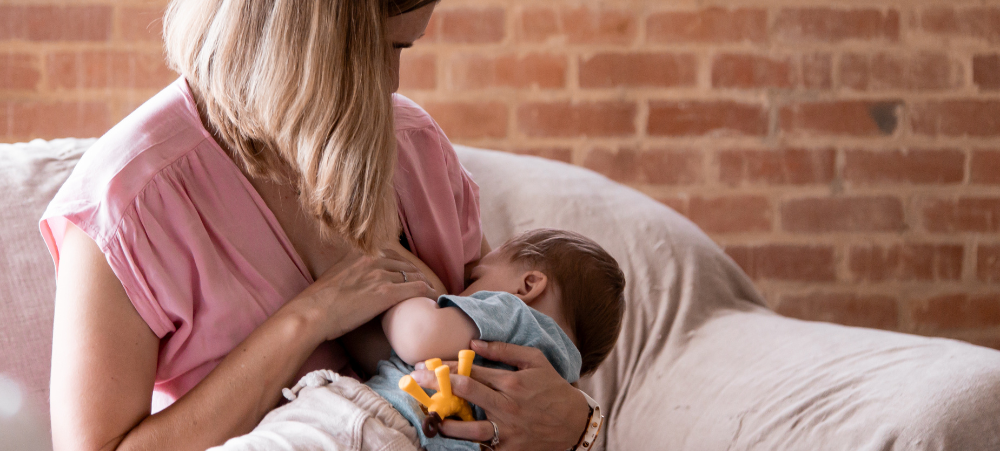Whether a mother breastfeeds her baby or not is an emotionally loaded topic, but regardless of opinions, there is no denying the benefits of breastfeeding
It’s not always obvious, but snide remarks or eye-rolling are just some of the subtle ways in which our society humiliates breastfeeding mothers.
According to the Association for Dietetics in South Africa (ADSA) breastfeeding wherever and whenever a baby gets hungry is perfectly legal and deserves to be fully supported. In contrast, shaming moms into desperately breastfeeding their babies or expressing breastmilk in cold toilet cubicles and cramped cars in parking lots is not supportive of moms or their children.
“More shops, restaurants and other public spaces need to declare their support for breastfeeding mums to normalise breastfeeding. All workplaces need to have a policy around support for breastfeeding mothers and take action to support breastfeeding mums returning to work,” says ADSA dietitian and a breastfeeding mom, Nazeeia Sayed.
1. Breastfeeding reduces mothers’ risk of stroke
Breastfeeding may reduce your risk of suffering from a stroke later life.
A study from the University of Kansas School of Medicine found stroke risk among women who breastfed their babies was on average 23 percent lower in all women.
Interesting, they found that breastfeeding lowered the risk by 48 percent in black women and 21 percent in white women. What’s more, they found that the longer the reported length of breastfeeding, the greater the reduction in risk.
Strokes are the fourth leading cause of death among women aged 65 and older.
2. Breastfeeding boosts baby’s immune system
According to Dr Leneque X Lindeque, an obstetrician and gynaecologist practising at Netcare Alberlito Hospital, breastmilk assists with the transfer of the mother’s immune system and fills an ‘immunological gap’ while the infant’s immune system is still immature.
She says that breastfed babies are less likely to develop allergies, with research further indicating a better antibody response to vaccines. Your baby’s risk of sudden infant death syndrome (SIDS) is also reduced by about half.
“Incidences of pneumonia, colds and viruses as well as gastrointestinal infections such as diarrhoea are greatly reduced. Chronic illnesses such as diabetes, heart disease, obesity and certain cancers are also less likely to occur in breastfed infants,” says Dr Lindeque.
A study by the University of Helsinki study found that breastfeeding helps protect babies from antibiotic-resistant bacteria.
They found that breastfeeding reduced the number of resistant bacteria in the infant gut.
According to research, antibiotic-resistant bacteria are one of the greatest global threats to human health and could cause more deaths than cancer by 2050.
Breast milk also contains sugars in the milk which provide sustenance for the beneficial infant gut bacteria, such as Bifidobacteria, which are used as probiotics.
3. Breastfeeding protects mom from non-alcoholic fatty liver disease
Research from the University of California San Diego School of Medicine and Kaiser Permanente found that mothers who breastfed a child or children for six months or more have a lower risk of developing non-alcoholic fatty liver disease during mid life.
4. Breastfeeding can help prevent food allergies in children
A University of California – San Diego study found that breast milk may help to reduce food sensitisation in babies.
“Breastmilk contains numerous immune factors and properties, which can assist in allergy prevention, as well as protect babies from infections,” says Dr Thulja Trikamjee, a specialist paediatrician and allergologist who practises at Netcare Sunninghill Hospital in Johannesburg.
She says that, unless you have a confirmed allergy to a specific food or foods, try to ensure that you do not avoid any foods or food groups, both during pregnancy and while breastfeeding. “This will continue to expose your baby to trace amounts of food proteins via your breastmilk.”
5. Breastfeeding reduces cancer risks
According to Dr Lindeque, breastfeeding not only provides protection against the development of pre-menopausal breast cancer but also reduces the risk of ovarian and uterine cancers.
Studies have found that producing breast milk tends to inhibit cells from ‘misbehaving’ and becoming cancerous. Many women have fewer menstrual cycles while breastfeeding, which in turn lowers oestrogen levels, a major cause of breast cancer.
According to a study published in The Lancet, longer-duration breastfeeding reduces the risks of breast cancer and ovarian cancer for mothers, and increasing breastfeeding to near-universal levels for infants and young children could prevent about 20 000 deaths from breast cancer every year.
Breastfeeding also reduces the risk of childhood cancers. A study finding that babies who were breastfed for at least six months have a 19% lower risk of childhood leukaemia compared to children who were never breastfed or were breastfed for a shorter period.
These are just some of the scientifically proven benefits, but as many moms will agree, there is no measure for the bonding experience.
As ADSA dietitian Maryke Gallagher says, “Being able to breastfeed your baby is such a great privilege and the wonderful quality time you have with your baby is priceless.”

Author: MONIQUE WARNER
Monique is All4Women’s Health Editor. When she’s not editing health articles, Monique compiles our gardening and home décor tips. She loves photography, art, following workouts online and is known to have more pot plants than shoes.
- 5 Tips for baby’s first outing - October 28, 2024
- 6 Must-read tips for successful expressing - October 21, 2024
- Grapes PLUS 8 other things your toddler can choke on - October 15, 2024





